The Sectional Properties Act, 2020 (SPA) transformed how ownership of units within a building is structured in Kenya. This article unpacks everything you need to understand about sectional titles under this new Act.
What is a Sectional Title?
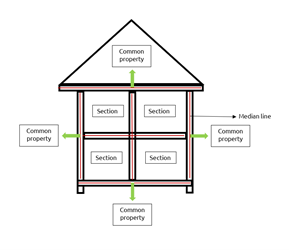
A sectional title refers to ownership of a specific unit within a building, along with a proportionate share of the common areas like hallways, elevators, and amenities. Each unit owner receives a separate title deed, similar to owning a freestanding house.
Can one hold a Sectional Title in Kenya?
Yes, absolutely. The SPA facilitates ownership of sectional titles in Kenya. This applies to buildings with apartments, flats, maisonettes, townhouses, or offices, provided the land is held on a freehold title or a leasehold title with at least 21 years remaining.
How does the Sectional Properties Act, 2020 Differ from Past Unit Ownership Regimes in Kenya
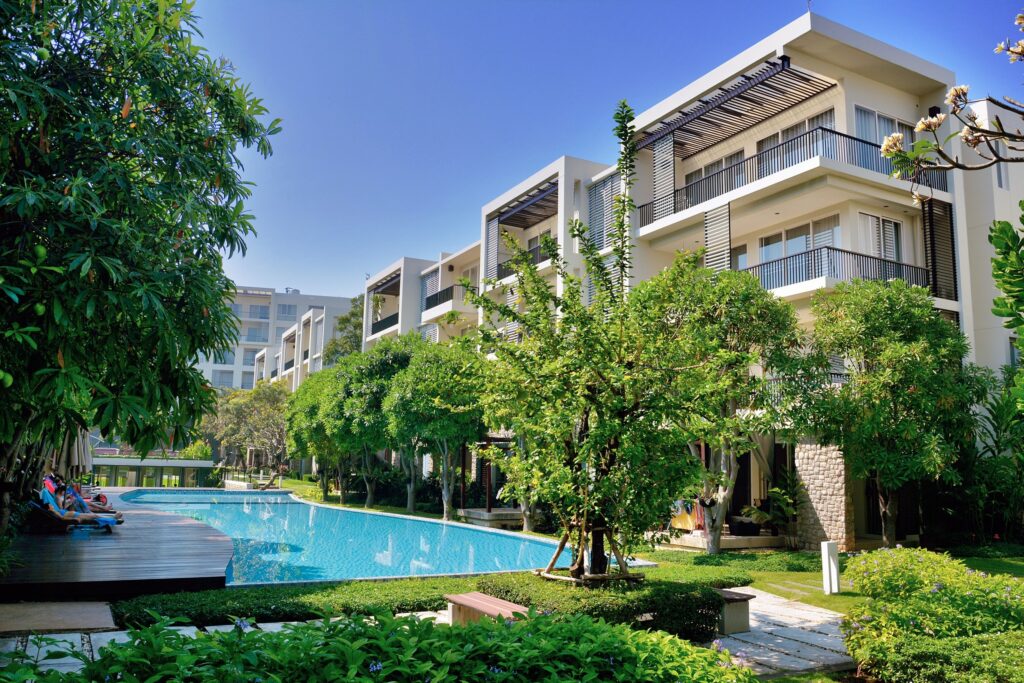
Before the SPA, unit ownership was governed by the Sectional Properties Act, of 1987. Here’s how the new Act differs:
Problems with the Past Regime
- Limited applicability: The 1987 Act only applied to freehold or leasehold land with a minimum unexpired term of 45 years, significantly limiting its reach.
- Title deed for the entire building: Owners received a single title deed for the entire building, making individual ownership less clear.
How the New Act Cures Previous Issues
- Wider applicability: The SPA applies to leasehold titles with a minimum unexpired term of 21 years, opening up sectional ownership to more developments.
- Individual unit titles: Each unit owner receives a separate title deed for their specific unit, providing greater ownership clarity.
Sectional titles on leasehold land
A significant improvement of the SPA is the inclusion of leasehold land with a minimum of 21 years remaining. This allows for ownership of units in developments built on leased land, which was previously not possible.
Impact of the Sectional Properties Act
The SPA has a positive impact on both property owners and developers:
- Increased property value: Individual ownership with clear titles can potentially increase the value of units within a sectional development.
- Easier financing: With clear titles, securing loans for property purchases within a sectional development might become easier.
- Enhanced property management: The Act establishes a framework for a Sectional Properties Corporation, responsible for managing the common areas and ensuring a smooth running of the development.
FAQs
What does this Act seek to implement?
The SPA ushers in a new era of property ownership by establishing Sectional Titles. These titles grant individual ownership of units within a complex or development, encompassing apartments, flats, maisonettes, townhouses, or office spaces.
Beyond unit ownership, a Sectional Title grants each owner a proportional share of the common property – hallways, walkways, gardens, etc. – co-owned with other unit owners. This creates a structure similar to a tenancy in common, where ownership of the common areas is shared.
The Act establishes a mandatory Sectional Properties Corporation (SPC) comprised of all unit owners. This corporation manages the common areas, eliminating the need for a separate company under the Companies Act, reducing costs, and simplifying administration.
Key Differences between the SPA 2020 and the Repealed Act
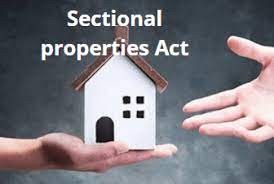
Previously, unit ownership relied on sub-leases issued by developers who held the “mother title” to the land. These sub-leases were dependent on the mother title, limiting individual ownership rights.
The SPA introduces significant changes:
- Applicability: The SPA now applies to leasehold properties with a minimum of 21 years remaining, expanding its reach compared to the 45-year threshold under the repealed Act.
- Autonomy for Unit Owners: Unlike the previous requirement to disclose rental income and contribute maintenance deposits, the SPA empowers owners with greater autonomy in managing their units.
- Dispute Resolution: The repealed Act directed disputes to a tribunal. The SPA establishes an internal dispute resolution mechanism within the SPC, offering a potentially faster and more convenient approach.
- Foreign Ownership: The SPA allows foreigners to hold leasehold sectional titles for up to 99 years, while Kenyan citizens can hold both freehold and leasehold titles exceeding 99 years, aligning with the Kenyan Constitution.
Benefits of the Sectional Properties Act 2020
The SPA offers numerous advantages for property owners and investors:
- Simplified Registration: The Act streamlines the registration process for sectional properties, facilitating faster transactions and eliminating the need for complex lease documents.
- Enhanced Financing: With individual titles, owners can more easily secure loans using their units as collateral, attracting lenders due to the clarity of ownership.
- Reduced Costs: Buyers may benefit from lower purchase costs as the SPA removes the need for “reversionary interest” transfers, which previously incurred additional fees.
- Increased Transparency: The Act mandates disclosure requirements, ensuring buyers receive comprehensive information about a unit’s status and any existing encumbrances before purchase.
Can I Convert my lease registered under LRA to a sectional unit under the new Act?
The SPA allows conversion of existing leases registered under the Land Registration Act (LRA) to sectional units, provided the lease has a minimum unexpired term of 21 years. Developers, owners, or the management company can initiate the process by following the guidelines.
What effect will registering a sectional plan have?
Upon registration, the mother title is surrendered, and individual registers are opened for each sectional unit. This results in the issuance of separate certificates of title (freehold) or certificates of lease (leasehold) for each unit, incurring a registration fee.
Who pays land rent and land rates in a sectional development?

The responsibility for land rent and rates shifts from the management entity to individual unit owners. Each owner becomes liable for their unit’s portion.
Can the sectional status be terminated and if so, how?
Sectional status termination can occur under specific circumstances:
- Unanimous Vote by the SPC: All unit owners must agree to dissolve the sectional ownership structure.
- Substantial Damage: If the building suffers significant or irreparable damage, termination might be necessary.
- Compulsory Acquisition: If the government acquires the land for public use, the sectional ownership structure may be terminated.
Conclusion
The Sectional Properties Act, 2020 represents a significant step forward for property ownership in Kenya. By establishing clear ownership structures, and empowering unit owners, the SPA creates a secure and transparent environment for property investment.
A4ARCHITECT OFFICE,
ALONG SOUTHERN BYPASS.
SOUTH HOUSE HOTEL AIRBNB – 0721410684
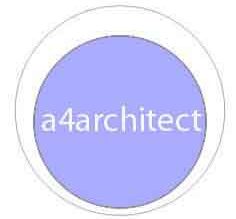
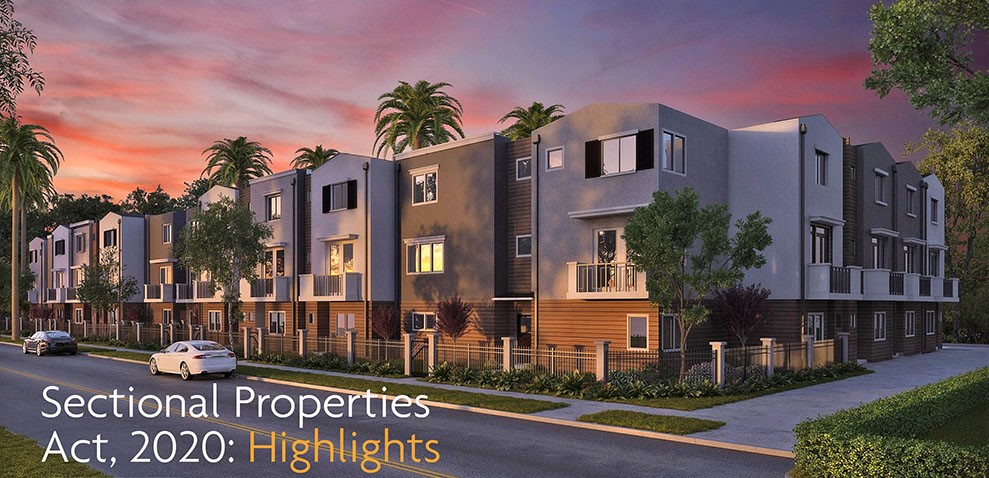

Leave a Reply